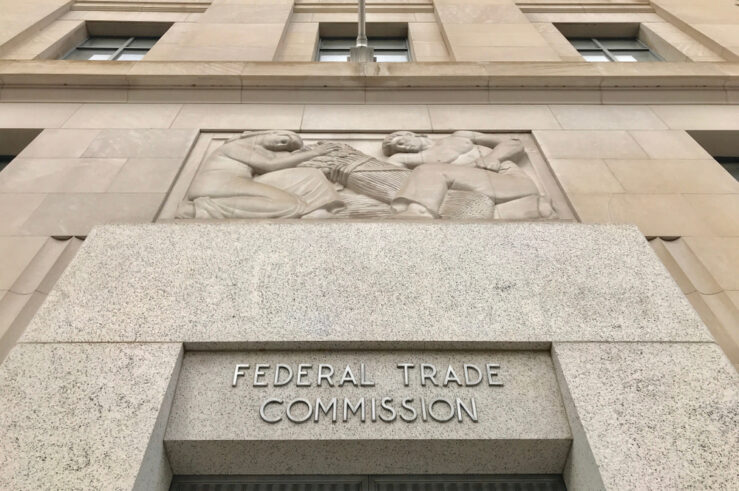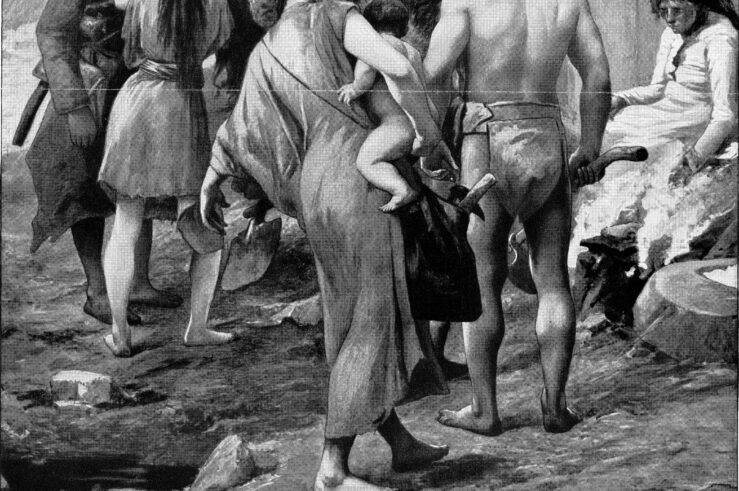Showing results for: “premium natural and organic”
What Transmission Markets Can Learn from the FCC’s Pole-Attachment Problem
Large portions of the country are expected to face a growing threat of widespread electricity blackouts in the coming years. For example, the Western Electricity Coordinating Council—the regional entity charged with overseeing the Western Interconnection grid that covers most of the Western United States and Canada—estimates that the subregion consisting of Colorado, Utah, Nevada, and ... What Transmission Markets Can Learn from the FCC’s Pole-Attachment Problem
No, Chevron Deference Will Not Save the FTC’s Noncompete Ban
The Federal Trade Commission (FTC) announced in a notice of proposed rulemaking (NPRM) last month that it intends to ban most noncompete agreements. Is that a good idea? As a matter of policy, the question is debatable. So far as the NPRM is concerned, however, that debate is largely hypothetical. It is unlikely that any ... No, Chevron Deference Will Not Save the FTC’s Noncompete Ban
Killer Acquisition or Leveling Up: The Use of Mergers to Enter Adjacent Markets
In the world of video games, the process by which players train themselves or their characters in order to overcome a difficult “boss battle” is called “leveling up.” I find that the phrase also serves as a useful metaphor in the context of corporate mergers. Here, “leveling up” can be thought of as acquiring another ... Killer Acquisition or Leveling Up: The Use of Mergers to Enter Adjacent Markets
Biweekly FTC Roundup: A Guide for the Perplexed Edition
In a prior post, I made the important if wholly unoriginal point that the Federal Trade Commission’s (FTC) recent policy statement regarding unfair methods of competition (UMC)—perhaps a form of “soft law”—has neither legal force nor precedential value. Gus Hurwitz offers a more thorough discussion of the issue here. But policy statements may still have ... Biweekly FTC Roundup: A Guide for the Perplexed Edition
Why I’m a Skeptic of a Noncompete Ban
Under a recently proposed rule, the Federal Trade Commission (FTC) would ban the use of noncompete terms in employment agreements nationwide. Noncompetes are contracts that workers sign saying they agree to not work for the employer’s competitors for a certain period. The FTC’s rule would be a major policy change, regulating future contracts and retroactively ... Why I’m a Skeptic of a Noncompete Ban
The FTC’s NPRM on Noncompete Clauses: Flirting with Institutional Crisis
The Federal Trade Commission’s (FTC) Jan. 5 “Notice of Proposed Rulemaking on Non-Compete Clauses” (NPRMNCC) is the first substantive FTC Act Section 6(g) “unfair methods of competition” rulemaking initiative following the release of the FTC’s November 2022 Section 5 Unfair Methods of Competition Policy Statement. Any final rule based on the NPRMNCC stands virtually no ... The FTC’s NPRM on Noncompete Clauses: Flirting with Institutional Crisis
FTC Proposes Rule Deeming Non-Compete Clauses to be Unfair Methods of Competition
On Jan. 5, 2023, the Federal Trade Commission (FTC) issued a Notice of Proposed Rulemaking (NPRM) to prohibit employers from entering non-compete clauses with workers.[1] The proposed rule would extend to all workers, whether paid or unpaid, and would require companies to rescind existing non-compete agreements within 180 days of publication of the final rule.[2] ... FTC Proposes Rule Deeming Non-Compete Clauses to be Unfair Methods of Competition
Price-Parity Clauses: The Good, The Bad, and the…Anticompetitive?
Price-parity clauses have, until recently, been little discussed in the academic vertical-price-restraints literature. Their growing importance, however, cannot be ignored, and common misconceptions around their use and implementation need to be addressed. While similar in nature to both resale price maintenance and most-favored-nations clauses, the special vertical relationship between sellers and the platform inherent in ... Price-Parity Clauses: The Good, The Bad, and the…Anticompetitive?
FTC Biweekly UMC Roundup – Refugee from the FTC Edition
Faithful and even occasional readers of this roundup might have noticed a certain temporal discontinuity between the last post and this one. The inimitable Gus Hurwitz has passed the scrivener’s pen to me, a recent refugee from the Federal Trade Commission (FTC), and the roundup is back in business. Any errors going forward are mine. ... FTC Biweekly UMC Roundup – Refugee from the FTC Edition
Political Philosophy, Competition, and Competition Law: The Road to and from Neoliberalism, Part 3
As it has before in its history, liberalism again finds itself at an existential crossroads, with liberally oriented reformers generally falling into two camps: those who seek to subordinate markets to some higher vision of the common good and those for whom the market itself is the common good. The former seek to rein in, ... Political Philosophy, Competition, and Competition Law: The Road to and from Neoliberalism, Part 3
Is Pix Really the End of Credit Cards?
In late August, Roberto Campos Neto, the head of Brazil’s central bank, is reported to have said about Pix, the bank’s two-year-old real-time-payments (RTP) system, that it “eliminates the need to have a credit card. I think that credit cards will cease to exist at some point soon.” Wow! Sounds amazing. A new system that ... Is Pix Really the End of Credit Cards?
What Antitrust Scholars Can Learn from the Bronze Age Collapse
There is an emerging debate regarding whether complexity theory—which, among other things, draws lessons about uncertainty and non-linearity from the natural sciences—should make inroads into antitrust (see, e.g., Nicolas Petit and Thibault Schrepel, 2022). Of course, one might also say that antitrust is already quite late to the party. Since the 1990s, complexity theory has ... What Antitrust Scholars Can Learn from the Bronze Age Collapse















